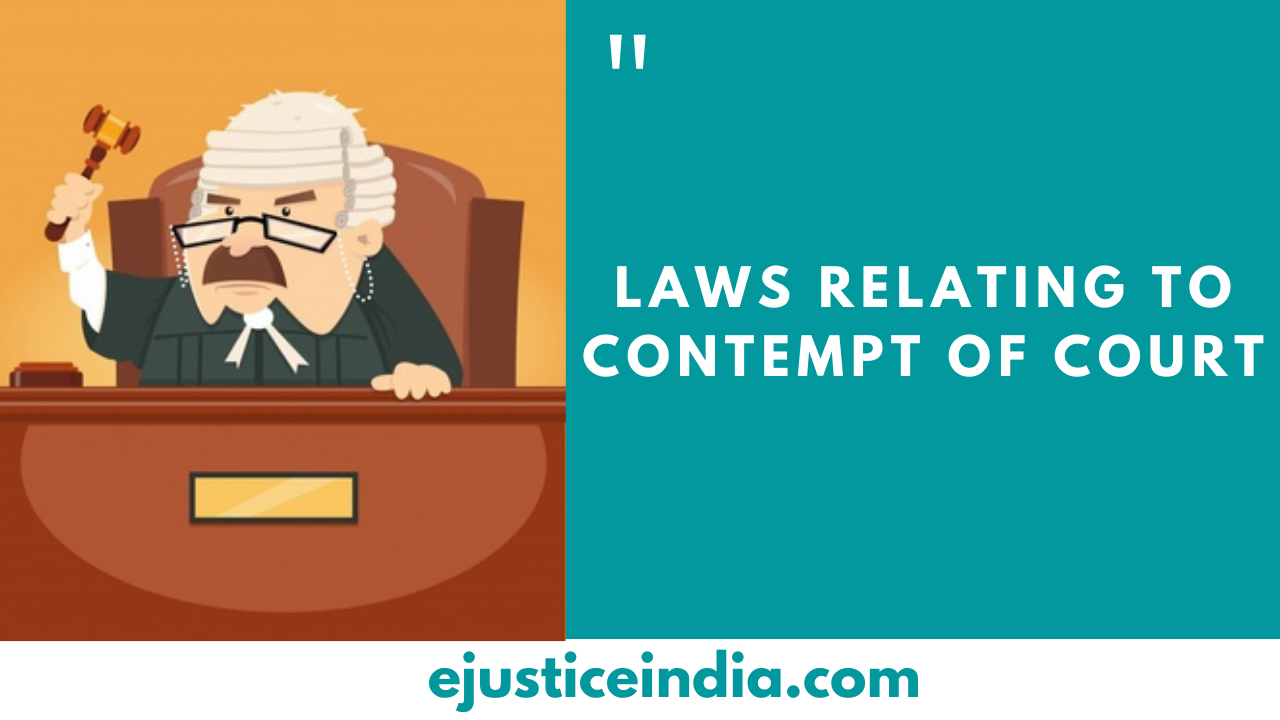LEGAL SERVICES AND CONSUMER RIGHTS: THE ADVOCATE EXEMPTION DILEMMA
Author: Chanchal Sharma, LL.M. (Criminal Law and Criminal Justice Administration), NFSU
ABSTRACT
The exclusion of legal services provided by advocates from the Consumer Protection Act, 2019 in India has sparked significant debate concerning consumer rights and professional accountability. Enacted to safeguard consumers from unfair trade practices, the Section 2(42) of Consumer Protection Act 2019 defines “Service” broadly but explicitly excludes services under “a contract of personal service,” which includes legal services provided by advocates.
The Supreme Court’s decision in Bar of Indian Lawyers v. D.K. Gandhi underscores the rationale behind this exemption. It emphasises that the Consumer Protection Act, 2019 aims primarily to protect consumers in commercial transactions, not to regulate professional services requiring specialised knowledge and ethical standards. Advocates are governed by the Advocates Act, 1961 and stringent Bar Council of India rules which operate within a framework designed to address professional misconduct and negligence through State Bar Councils. In this article, the Author will analyse the interplay between Consumer Act and Advocate Act, the rationale behind the immunity and the positions of foreign countries in dealing with this issue.
Keywords: Consumer Protection, Advocate, Exemption, Justice, Rights.
INTRODUCTION
The Consumer Protection Act, 2019 (hereinafter “CPA 2019”) is a cornerstone in protecting consumer rights in India, intending to promote fair commercial practices and providing a strong process for resolving customer complaints. Advocates, also known as lawyers or solicitors, are legal experts responsible for representing clients in a variety of legal situations. Their responsibilities go beyond courtroom advocacy to include legal consulting services, negotiating, preparing legal documents, and representation in alternative conflict resolution procedures. The Advocates Act, 2019 as advocates for justice, fighting for their client’s rights and interests within the confines of the law.
In India, safeguarding consumer rights is governed by the CPA 2019, which superseded the previous Consumer Protection Act of 1986 (“CPA 1986”). This updated legislation addresses contemporary challenges encountered by consumers in an increasingly technology-driven environment. It encompasses a range of provisions aimed at ensuring the protection and advancement of consumer rights. Despite the vast scope of consumer protection rules, there is a major exemption for services provided by advocates. This exception, codified in Section 2(1)(d) of the CPA 2019, states that services performed by advocates in their professional capacities are not subject to consumer protection legislation. Essentially, this exemption excludes advocates from the Act’s description of “Service provider,” exempting them from its regulatory processes.
The advocate exemption is based on concepts of legal autonomy and professional ethics. Advocates work within a specific framework defined by the Bar Council of India’s rules and regulations, which establish standards of conduct, ethics, and professional accountability. This autonomy is required to support the attorney-client interaction and promote confidence and secrecy in legal procedures. Furthermore, advocates are court officers who have a duty to the administration of justice, which often requires some independence in their legal practice.
The advocate exemption has significant ramifications for both advocates and consumers. For advocates, it provides some insulation from consumer protection legislation, insulating them from certain regulatory mechanisms and liabilities that may apply to other service providers. This exemption allows advocates to carry out their professional obligations without undue interference or constraint, maintaining the independence and integrity of the legal profession.
However, the exemption raises concern about responsibility and redress for customers who may be harmed by the conduct of their advocates. Advocates, unlike other service providers, may be exempt from the same consumer protection measures, making it difficult for customers to seek recourse in circumstances of professional misconduct, negligence, or violation of ethical norms. This gap in accountability highlights the importance of striking a delicate balance between advocating for legal practitioner’s autonomy and providing proper consumer protection.
LEGAL IMMUNITY FOR ADVOCATES
In a landmark ruling, the Hon’ble Supreme Court (the Apex Court), in its recent judgement in Bar of Indian Lawyers v. D.K. Gandhi, PS National Institute of Communicable Diseases and Anr., [1] has determined that advocates are not covered under the scope of the Consumer Protection Act, 1986 (“CPA 1986”), as re-enacted by the Consumer Protection Act, 2019 (“CPA 2019”). Through this judgement, the Apex Court has clarified that advocates cannot be held liable under the consumer protection laws for alleged deficiencies in their services. Accordingly, the Apex Court has overruled the National Consumer Disputes Redressal Commission’s (“NCDRC”) decision in D.K. Gandhi PS v. M. Mathias [2], which had ruled that complaints under the Consumer Protection Act, 1986, would be maintainable for any deficiency in services rendered by lawyers.
The appeal before the Apex Court arose from a disputed 2007 NCDRC order. The respondent had engaged a lawyer for a cheque bouncing case under the Negotiable Instruments Act, 1881. During the case, the accused agreed to pay the due amount along with expenses, which were paid to the respondent’s lawyer. However, the advocate withheld part of the received sum, allegedly because the respondent owed him fees. Consequently, the respondent filed a consumer complaint against the advocate for the recovery of the pending payment, along with compensation for harassment and mental agony. A preliminary objection regarding the admissibility of a complaint against an advocate due to lack of jurisdiction was raised before the District Consumer Forum, but it was dismissed, and the Forum ruled in favour of the respondent. Aggrieved by this decision, the advocate appealed to the State Commission, which overruled the District Consumer Forum’s decision, stating that Section 2(1)(o) of the CPA 1986, did not cover lawyers. However, in the revision application, the NCDRC issued the contested order that overturned the State Commission’s decision, which led to the current appeal before the Apex Court.
REGULATORY OVERSIGHT OF ADVOCATES
The Apex Court began by examining the legislative intent behind the CPA 1986, as re-enacted in 2019. According to the Apex Court, the consumer law framework was established to safeguard consumers against exploitation by manufacturers and traders. The 2019 re-enactment occurred due to significant gaps resulting from the rapid evolution of the market landscape, which left consumers vulnerable and necessitated legislative action. However, the Apex Court noted that the Act was never intended to cover professionals, who cannot be equated with businesses or trades that involve a commercial aspect. Professionals require a high level of proficiency and training, distinguishing their services from commercial transactions.
The Apex Court emphasised that interpreting the Act or its preamble to include professionals within the scope of trade or business would be an overextension of its intended scope. Additionally, the Apex Court employed a consequentialist reasoning to support this view, suggesting that including professionals under the Act’s purview would undermine its objective. It argued that such an inclusion would lead to a flood of frivolous and vexatious lawsuits from dissatisfied parties, thereby hindering the Act’s aim of providing timely and effective dispute resolution for consumers.
RATIONALE BEHIND THE EXEMPTION
The legal profession is sui generis, meaning it is unique and cannot be compared to any other profession. A profession cannot be equated with business or trade, nor can the services provided by professionals be considered equivalent to those offered by businessmen or traders, in order to bring them under the scope of the Consumer Protection Act. The primary aim and objective of the CPA 1986, as revised in 2019, was to shield consumers from unfair trade practices and unethical business conduct. The Legislature did not intend to encompass professions or the services provided by professionals within the scope of the Act of 1986/2019.
A service obtained from an advocate is regarded as a service under “a contract of personal service,” and therefore falls within the exclusionary provision of the definition of “Service” as specified in Section 2(42) of the CPA, 2019.
It also noted that the Advocates Act, 1961, and the Bar Council of India Rules contain comprehensive provisions to address professional misconduct by advocates, including prescribed punishments. The existence of this specialised regulatory body reduces the need for additional consumer protection oversight. The Bar Council’s procedures are tailored to the unique nature of legal services, making it more adept at handling disputes and ensuring accountability within the profession. By exempting advocates from the Consumer Protection Act, the Legislature recognizes the sufficiency and appropriateness of this existing regulatory structure.
POSITION OF FOREIGN COUNTRIES
United States (US): In the U.S., lawyers are subject to malpractice suits, with a robust legal framework ensuring consumer protection within the professional service domain. Regulation of lawyers primarily occurs at the state level, managed by state bar associations and the American Bar Association (ABA). While consumer protection laws apply to legal services, specific rules govern the legal profession. Each state enforces its own rules of professional conduct through state bar associations, setting standards for attorney behaviour and handling disciplinary actions. Lawyers may be subject to consumer protection laws like Federal Trade Commission (FTC) regulations if their conduct involves unfair or deceptive practices. However, most complaints about legal services are addressed through state bar disciplinary processes or malpractice lawsuits rather than general consumer protection statutes.
United Kingdom (UK): In the UK, the Legal Services Act 2007 and the Consumer Rights Act 2015 provide protections to clients of legal services, balancing professional regulation with consumer rights. Lawyers, including solicitors and barristers, are primarily regulated by the Solicitors Regulation Authority (SRA) and the Bar Standards Board (BSB). While consumer protection laws aim to shield consumers from unfair practices in commercial transactions, legal services also fall under these laws to some extent. The Legal Ombudsman addresses complaints about poor service, whereas the SRA and BSB handle matters related to professional conduct and ethics. The Consumer Rights Act 2015 ensures that services, including legal services, are provided with reasonable care and skill, though liability is nuanced and subject to professional standards and regulations.
CONCLUSION
In India, the legal profession is regulated by the Advocates Act, 1961. According to this Act, the Bar Council of India, under Section 49(1)(c), has established comprehensive standards for professional conduct and etiquette. Consequently, clients can file complaints about misconduct with the State Bar Council where the advocate is registered. This demonstrates that the Advocates Act already addresses matters related to lawyers’ conduct. As a specialised law, the Advocates Act supersedes the Consumer Protection Act when it comes to regulating advocates behaviour. Furthermore, the Court highlighted that clients can pursue criminal or civil actions against advocates for professional misconduct or negligence.
The rationale behind exempting advocates from the CPA, 2019, is multifaceted, aiming to preserve the autonomy and independence essential to the legal profession, protect the confidentiality of the attorney-client relationship, leverage the existing specialised regulatory framework, and recognize the unique nature of legal services. This exemption ensures that advocates can continue to provide effective, fearless, and confidential legal representation, while existing mechanisms within the legal profession address issues of accountability and professional conduct.


